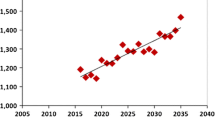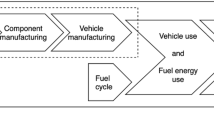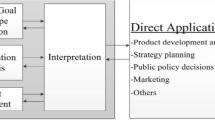Abstract
Research and/or Engineering Questions/Objective: The road transport in Europe almost fully depends on fossil fuel. Diversification of the road transport fuels will be a key attribute for road transport in the coming years. Biogas is one of alternative renewable fuels. Actually in Poland biogas is used for generating electricity and heat. In some countries (for example in Sweden), upgraded biogas to natural gas quality (biomethane) is used as a vehicle fuel too. In this chapter estimated biogas production potential in Baltic See Region countries: Germany, Poland and Sweden. It is one of the purposes of European Project Baltic Biogas Bus, realized presently. Methodology: Authors of the paper discussed ecological results of biogas (biomethane) application for fuelling city buses. Comparative studies of exhaust emissions from city buses powered by diesel and CNG engine were carried out. The study was conducted under real traffic conditions in southern Polish city Rzeszow. Due to the lack in-service city buses with emission level Euro V in Rzeszow, comparative studies of this type of city buses powered by diesel and CNG engine was conducted in SORT I test. Determined mean values of road emissions in g/km for the city buses operated in Rzeszow. Estimated value of the total road emissions in the case that would be replaced half the fleet of city buses (40 CNG buses and about 35 % of the diesel engine powered buses, meet Euro III emission standard) by the CNG-powered (biomethane) city buses, complying with Euro V (EEV) emission standard. Results: It was found, inter alia, that the above-mentioned exchange half the fleet of city buses in Rzeszow for CNG-powered buses that meet Euro V (EEV) emission standard, reduced by about 10 %, first of all, the total CO2 emissions. The reason is to use during test SORT I the bus with engine of small displacement (downsizing). Also significantly reduced the total emission of CO and NOx (54 %) and (44 %), while THC emissions increased (70 %). Road PM emission is, as is the case in vehicles powered by CNG (biomethane), very small. The use of biomethane instead of CNG, as a fully renewable energy source, will reduce CO2 emissions compared to diesel fuel supply very significantly, taking into account the emission from the well to the wheel. The paper presents the estimated potential of biogas in Baltic See Region countries: Germany, Poland and Sweden, too. Limitations of this study: A limitation of the study was, inter alia, lack possibilities of research in real traffic conditions in Rzeszow, exhaust pollutant emissions from city buses with the Euro V level of emissions. These buses are not operated here. The lack Portable Particulate Measurement Device (PPMD) also prevented a more accurate measurement of particulate emissions during tests city buses in Rzeszow. What does the paper offer that is new in the field in comparison to other works of the author: Comparative works discussed in this chapter as well as estimates of biogas potential production in above-mentioned the Baltic Sea Region countries, the authors earlier have not conducted. Conclusion: The new transport White Paper recommends an ambitions target of 60 % reduction of greenhouse gas emissions from transport up to 2050 in comparison to 1990. In this publication is forecasted that biomethane will be alternative road transport fuel for passenger/light duty cars, heavy duty (city) vehicles and heavy duty (long distance) vehicles in short term period (2020), mid term period (2030) and long term period (2050—only for passenger/light duty cars and heavy duty (city) vehicles). Prospect of application of biogas (biomethane) as a city fuel buses is significant.
F2012-B01-037
Access this chapter
Tax calculation will be finalised at checkout
Purchases are for personal use only
Similar content being viewed by others
References
Directive 2003/30/EC: Official journal of the european union L123/42, 17.5.2003
Biernat K, Dziołak P, Gis W, Żółtowski A : Desk study on wider range of biogas production options and experiences including production potential scenarios for the Baltic Sea Region. Baltic Biogas Bus Project
Biernat K (2007): New technologies biocomponents and biofuels first and second generation. International conference: the quality of fuels in Poland and the European Union. Warsaw
Petersson A (2010): Overview of upgrading technologies. Nordic biogas conference
Beyer J, Brown B: Terracastus technologies. Technology for cleaning and upgrading biogas, www.businessregion.se
Directive 2009/28/EC: Official journal of the european union L 110/16, 5.6.2009
Map of renewable energy sources, developed by studies the energy regulatory office: http://www.ure.gov.pl/uremapoze/mapa.html
Ministry of agriculture and rural development (2009) Assumptions biogas development program. Program “innovative energy, agriculture energy”. Warsaw
Development under the title residue biomass potential inventory results (Deliverable D5.01.03) in project renewable fuels for advanced power-trains (RENEW)
Obtaining biogas from municipal waste, editors agroenergetyka.pl. http://agroenergetyka.pl/?a=article&idd=149
Environmental protection (2008) Central statistics office, information and statistical studies, Warsaw
Production of biogas from waste water treatment plants, editors aeroenergetyka.pl: http://agroenergetyka.pl/?a=article&id=529
Biogas Basisdaten Deutschland (2010), stand: Juni
Bundesministerium für Ernährung, Landwirtschaft und Verbraucherschutz, Fachagentur Nachwachsende Rohstoffe e.V., Biogas Basisdaten Deutschland, Stand: 2009
German society for sustainable biogas and bioenergy utilization GERBIO, national report on current status of biogas and biomethane production of “GasHighWay” project (IEE/08/545/SI2.528537)
Dahlgren S, Swedish biogas association and Swedish gas association, Biogas state of the art: Sweden
Avfall Sverige—Swedish waste management 2009
Nylund Nils-Olof (2010) Environmental benefits with biogas buses, Nordic biogas conference Oslo, 10–12
European alternative fuel strategy in the clean transport system interactive. JEG “transport & environmental”
Author information
Authors and Affiliations
Corresponding author
Editor information
Editors and Affiliations
Rights and permissions
Copyright information
© 2013 Springer-Verlag Berlin Heidelberg
About this paper
Cite this paper
Merkisz, J., Gis, W. (2013). Biogas as a Fuel for City Buses. In: Proceedings of the FISITA 2012 World Automotive Congress. Lecture Notes in Electrical Engineering, vol 191. Springer, Berlin, Heidelberg. https://doi.org/10.1007/978-3-642-33777-2_14
Download citation
DOI: https://doi.org/10.1007/978-3-642-33777-2_14
Published:
Publisher Name: Springer, Berlin, Heidelberg
Print ISBN: 978-3-642-33776-5
Online ISBN: 978-3-642-33777-2
eBook Packages: EngineeringEngineering (R0)




